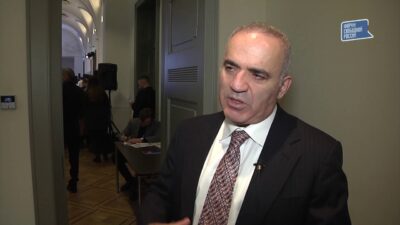The death of the founder of Wagner PMC Evgenii Prigozhin in the plane crash was an assassination, which was instructed to organize by the Secretary of the Security Council of the Russian Federation Nikolai Patrushev, claims The Wall Street Journal with reference to representatives of Western intelligence services and a former Russian intelligence officer.
According to the interlocutors of the publication, Patrushev warned Vladimir Putin back in the summer of 2022 that the political influence of Prigozhin, which appeared during the war in Ukraine, increasingly threatens the Kremlin. Against the backdrop of military successes of Wagner PMC this warning went unheeded. However, the situation changed when Prigozhin called Putin and complained about the lack of supplies. By December, “it became clear that Patrushev had won”, the WSJ writes. Putin began ignoring Prigozhin, and by early June, the Kremlin actually announced plans to remove Wagner PMC from the Russian combat forces.
In June, after Prigozhin’s mutiny began, Patrushev took control of the situation. He began calling officers from among the associates of the head of Wagner PMC to convince him to stop the mutiny. Patrushev also contacted the authorities of Kazakhstan and Belarus.
The Security Council chief hoped that Kazakhstan, which Russia helped to disperse the January 2022 protests, would return the favor, but President Kassym-Jomart Tokayev refused. Aleksandr Lukashenko agreed to mediate with Prigozhin.
In early August, more than a month after the rebellion ended, Patrushev ordered his aide to develop a plan to assassinate Prigozhin, a Russian intelligence source told the WSJ. This was later reported to Putin, and he did not object.
Prigozhin’s assassination had been in preparation for two months, the journalists said.
Prigozhin’s business jet crashed on August 23 in the Tver region. The head of Wagner PMC was on his way home from Moscow’s Sheremetyevo airport to St. Petersburg in his Embraer Legacy 600 with nine other people on board. While his plane was being prepared for departure, a small bomb was placed under the wing, WSJ’s interlocutors in Western security services claim. Half an hour after takeoff at an altitude of about 8,500 meters, the bomb exploded. All 10 people, including Prigozhin and Wagner PMC commander Dmitrii Utkin, were killed.
Russian presidential spokesman Dmitrii Peskov called the WSJ piece a “tabloid read”. “We have seen this material, but we would not like to comment on it. Well, because it hardly lends itself to comment –this kind of material. Yes, it’s you know such a continuation… lately, unfortunately, the Wall Street Journal is very fond of producing pulp fiction”, he said in a conversation with reporters.
Earlier, Peskov called “absolute lies” statements that the order to destroy the plane with Prigozhin was allegedly given by Putin personally.
In October, Putin, speaking at a meeting of the Valdai discussion club, said experts had found fragments of hand grenades in the bodies of the plane’s dead passengers. “There was no external impact on the plane, this is already an established fact, the result of an expert examination conducted by the Investigative Committee”, he said.
The Investigative Committee has opened a criminal case under the article on violation of the rules of safety of air transport, but as of the end of December, the official version of the causes of the crash of Prigozhin’s plane had not yet been announced.




